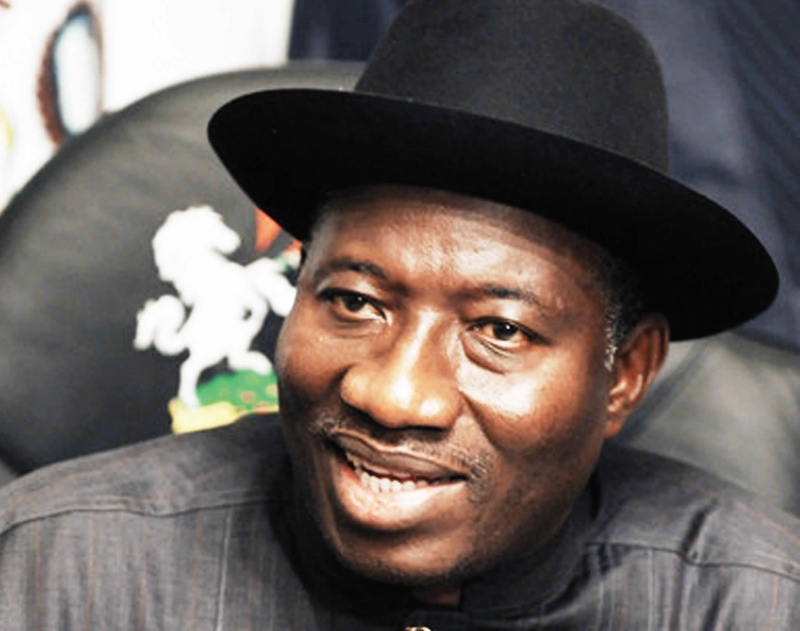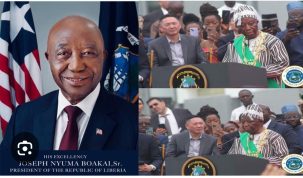As if to challenge the validity of the yearly poor showing of Nigeria on the transparency index, President Goodluck Jonathan said in Windhoek, Namibia, on Thursday that corruption in Nigeria has been exaggerated, such that it is affecting the image of the country.
At a meeting with the Nigerian community at the Country Club, Windhoek, Jonathan said “corruption is everywhere” but it is over-celebrated in the country to the extent that the nation and its people are stigmatised.
In the Transparency Index published in December 2013 by Transparency International, Nigeria was ranked the 34th most corrupt nation in the world, taking the 144th position, among 177 nations, ranked in the report.
In the group’s Corruption Perceptions Index 2013, Nigeria scored 25 points out of a possible 100 points, a performance even poorer than in 2012, when Nigeria scored 27 points. Nigeria shared the podium of infamy with crisis-torn Central African Republic and neighbour, Cameroon.
Denmark and New Zealand were the cleanest countries in the world, sharing the first spot in the index, with scores of 91. Afghanistan, North Korea and strife torn, Somalia were the worst, with scores of 8 points, a woeful performance indeed.
Although Jonathan conceded that corruption is a menace and that his administration would not condone it, he rejected suggestions that a harsher penalty be imposed to curb the pervasive sleaze, that many experts believe, has been the main reason Nigeria has been an under-achiever in many areas.
The president told his audience that his government would not use the big stick to curb corruption.
He said in fighting corruption, his government has continued to strengthen anti-corruption agencies.
In buttressing a softer approach in handling corruption, the president said armed robbery has not stopped despite the promulgation of decrees stipulating capital punishment.
The president therefore called on every Nigerian to resolve to do the right thing and support the government in its efforts at building a new Nigeria.
He assured that if all hands were on deck and the citizens cooperated with the government, the nation would be completely transformed in the next 10 years.
“The green passport should be a symbol of honour, respect and dignity, not humiliation,” he said.
He stressed that Nigeria was a great country and with certain definite steps the administration was taking, it would take its rightful position in the globe.
Jonathan assured the gathering that with all the political tension being created by the opposition in the country, he would not play politics with the development of the nation.
He said that the government had taken pragmatic steps to end the challenges of oil theft and piracy before 2015.
The Minister of Trade and Investments, Dr Olusegun Aganga, had charged the Nigerians in the Diaspora to build sovereign goodwill for the country wherever they are.
He said a lot of opportunities were available for them in the country and they could key into the transformation agenda of the government even from their countries of residence.
The minister said that Namibia exported fish and salt to Nigeria and therefore encouraged the audience to go into partnership and see how the technology could be brought back to Nigeria.
He said with the signing of 11 Memoranda of Understanding between both countries, there were opportunities for them to tap into it to make money and contribute positively to national development.
The Nigeria High Commissioner to Namibia, Dr Biodun Olorunfemi, said that about 2,000 Nigerians were resident in Namibia and they had been good ambassadors of the nation without any tainted record.
He said there was no single Nigerian in the Namibian prison, unlike in South Africa, and most of the people were contributing positively in the development of the country, particularly in the education, health and informal business sectors.
According to him, the Surveyor-General of Namibia, Dr Ugochukwu Okafor, is a Nigerian while the President-General of the Nigerian Community, Alhaji Buba Maidugu, works as a principal officer in the office of the Prime Minister of Namibia.
Maidugu in his earlier address, said that he was sent by the Federal Government to Namibia 24 years ago in company of 49 others, specifically for capacity building, when the country gained independence.
He said that when they came, mathematics and science subjects were exclusive reserve of the colonial whites while the few Namibians in schools were forced to read other subjects.
Maidugu said his team started the teaching of mathematics and sciences in Namibian schools and had graduated many Namibian doctors and scientists.
He said that between 1995 and 2000, all hospitals in Namibia were managed by Nigerian doctors.
Okafor, the Namibian Surveyor-General, commended President Jonathan on the privatisation of the power sector.
He also suggested the setting up of special tribunal to be presided over by retired judges in trying corruption cases.





